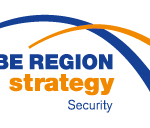As Danube has 31 tributaries and water quality is important for living in the Danube basin, all #EUSDR countries are responsible to ensure water safety. Therefore, cooperation not only between different authorities should be established, but also on transnational level. Water does not respect frontiers.
Therefore, #EUSDR assumed a major objective: to restore and maintain the quality of water, by managing the implementation of the Danube River Basin Management Plan, reducing the nutrient levels in the Danube River to allow the recovery of the Black Sea ecosystems to conditions similar to 1960s, elaborating a Danube Delta Analysis Report as a step towards completion of the Delta management Plan, securing viable populations of Danube sturgeon species.
So, this week story is about WATER, it is about how Europe contributes to improve the quality of life in the Danube region. Observing the #EUSDR provisions, CAMARO-D, a project financed by the @DanubeTransnationalProgramme, aims to restore and maintain the water quality on sub-basin level and to reduce flood risks.
Bringing 9 Danube countries around the table, the project team enlisted their main activities. They developed best practice manuals, which were partially tested within selected pilot areas (in each country) and which can be implemented also in other countries outside the project area. Some of these manuals deal with groundwater protection, flood prevention or alpine pasture management. For example,
in the Austrian Pilot Area of the city of Steyr, tree species which are adapted to the local climate were planted, following the principles of targeted forestry which fosters groundwater protection.
Furthermore, raising awareness on water quality topic is fundamental, especially for stakeholder institutions (spatial planners, farmers, decision makers etc.). This is why workshops, trainings, field trips etc. were organised and showed people why land use change is necessary. For instance, in the Austrian pilot area, children and parents learned about the importance of spatial planning to avoid the destruction of houses due to natural hazards.
Last but not least, a catchment-based concept of land use planning for the protection of water resources and mitigation of flood risk was developed, along with guidelines for its implementation on regional/local levels.
All project activities are meant to help land users (farmers, foresters etc.) by providing them important recommendations how to cultivate/manage their land. Water suppliers were advised how to optimize land uses (forestry, agriculture/grassland, pastures) and hence avoid problems with drinking water quality and quantity also in the future (considering climate change issues).
Overall, CAMARO-D is every Danubian inhabitant’s project: we all drink water and we all may be affected by flood risks or other natural hazards!
Find more about water quality in #EUSDR: https://www.danubewaterquality.eu/





